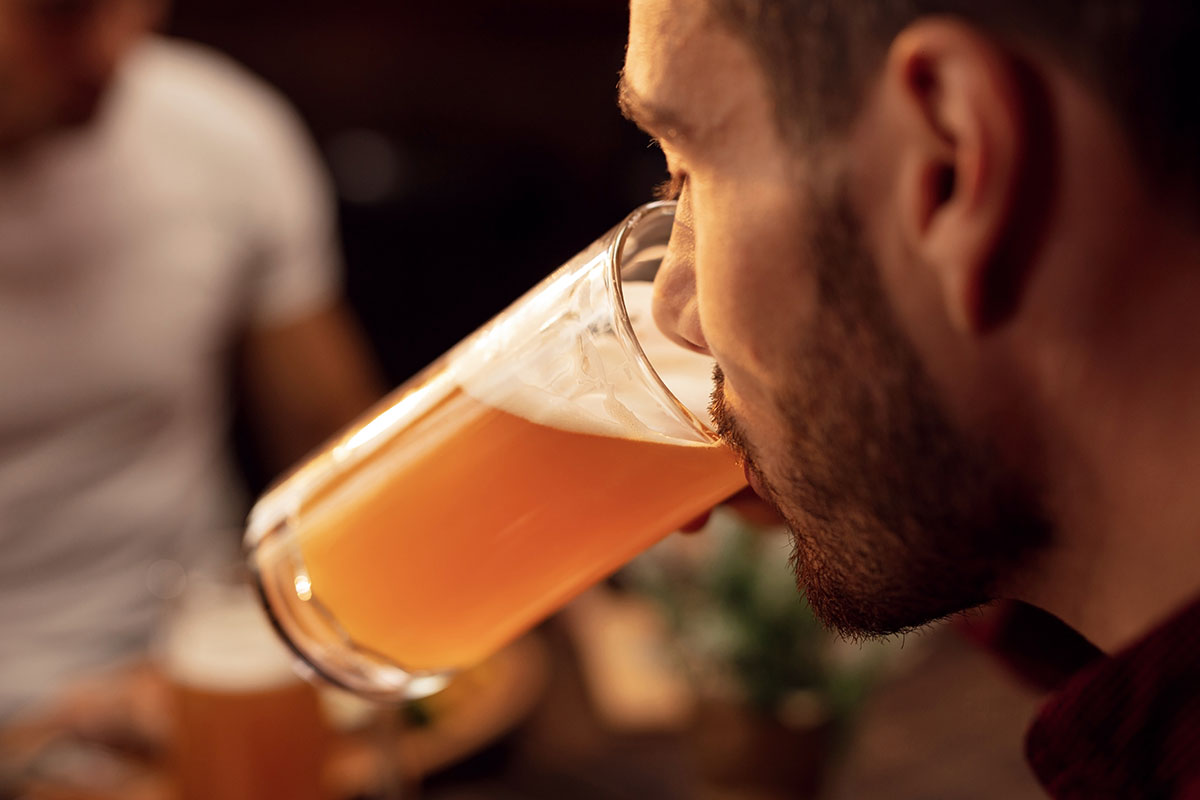Binge drinking is a negative pattern of behavior where someone drinks a large amount of alcohol in a small amount of time. People who binge drink may contain their drinking just to weekends or special occasions. Yet the amount they drink is dangerous, often to the point of blacking out. While their drinking may not be constant, binges become part of their routine behavior. People who fit the binge drinking definition put themselves at risk in multiple ways and may develop an addiction or dependence as a result.
Midwest Detox Center offers alcohol addiction treatment to help you overcome binge drinking. Contact Midwest Detox Center at 833.647.0392 to learn more about binge drinking and how to interrupt this damaging behavior in yourself or someone you love.
What is Binge Drinking?
Binge drinking is when males have five or more drinks within two hours. The binge-drinking definition for women is the same except that four drinks within two hours qualify as binge drinking due to biological differences. Not everyone experiences that amount of drinking in the same way. However, no amount of binge drinking behavior is safe or risk-free.
The risks of binge drinking are a particular threat to college-age students. Estimates indicate as much as 40% of college students engage in binge drinking at least once. It is possible to binge drink without developing an alcohol use disorder or addiction. Nonetheless, partaking in binge drinking opens the door to developing a tolerance or issue related to alcohol.
Common Signs of Alcohol Abuse
Most people who meet the binge drinking definition likely don’t define their behavior in such terms. They may not recognize how problematic or dangerous their actions are. Binge drinking is considered a type of alcohol abuse. Again, it does not guarantee that someone will become addicted. Yet it is all too common for people who binge drink to display common signs of alcohol abuse.
Interrupting this cycle is paramount to avoiding addiction, injury, or even alcohol-related death. A few common signs of alcohol abuse include:
- Experiencing strong cravings for alcohol
- Noticing an inability to cut down on drinking
- Continued use of alcohol despite adverse social, personal, or physical consequences
- The need to drink more and more to produce the same desired effects
- Withdrawal symptoms between bouts of drinking
What are some of the common factors that lead people to binge drink? It may not be surprising considering its prevalence among college students, but peer pressure is one of the top reasons. Being surrounded by a culture of drinking and partying only intensifies the pressure to drink. Easy access is another factor that drives the behavior.
Among the general population, mental health problems and trauma also contribute to whether or not a person is more predisposed to binge drinking. Answering the question of how to stop binge drinking is about more than just trying to say no when offered a drink in the future. It requires a thoughtful, dedicated approach to transforming mindsets and lifestyles in ways that support a healthy relationship to alcohol. That may indicate complete abstinence.
How to Stop Binge Drinking
The first step in figuring out how to stop binge drinking is recognizing a problem exists. If you struggle with denial or just aren’t sure your behavior meets the binge drinking definition, take an anonymous self-assessment online. The objective results will give you a good idea of where your behavior stands.
People who struggle with binge drinking have a variety of options. It may not require professional help if the behavior has yet to solidify into an alcohol abuse disorder. Simple lifestyle changes may be enough. Going to fewer parties on the weekend, having a good friend act as an accountability partner to monitor how many drinks you have, and removing alcohol from where you live can all support a healthier attitude toward alcohol.
Overcome Binge Drinking With Midwest Detox Center
Sometimes, professional help is merited. A number of treatment options for alcohol abuse and addiction exist. Midwest Detox Center is a specialist provider of alcohol detox services. Many times, medications such as disulfiram or naltrexone are used during detox to support the transition toward sobriety.
Other treatment options include behavioral therapies, inpatient or outpatient rehab, and 12-step programs. The sooner you seek help for an alcohol problem such as binge drinking, the better off you will be. Call Midwest Detox Center today at 833.647.0392 to help stop binge drinking in you or a loved one.







